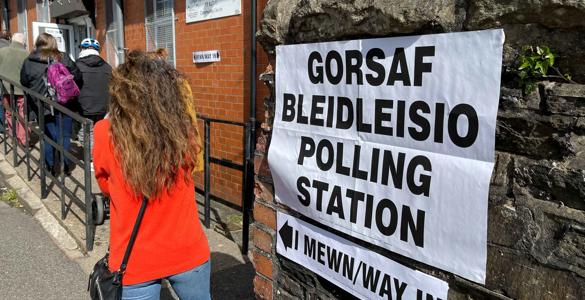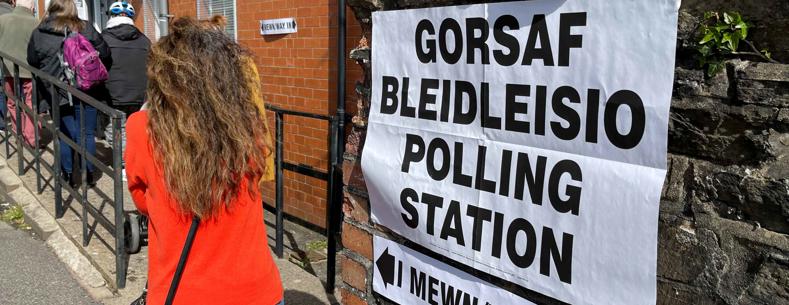The results of the UK General Election are in!
In Wales, Labour won the most seats, with 27, followed by Plaid Cymru with 4. The Liberal Democrats won 1 seat.
Our article summarises how the people of Wales voted and explains some of the big changes that came in for this election.
Results in Wales
Wales elects 32 MPs to the UK Parliament. The following chart shows how many seats were won by each party:
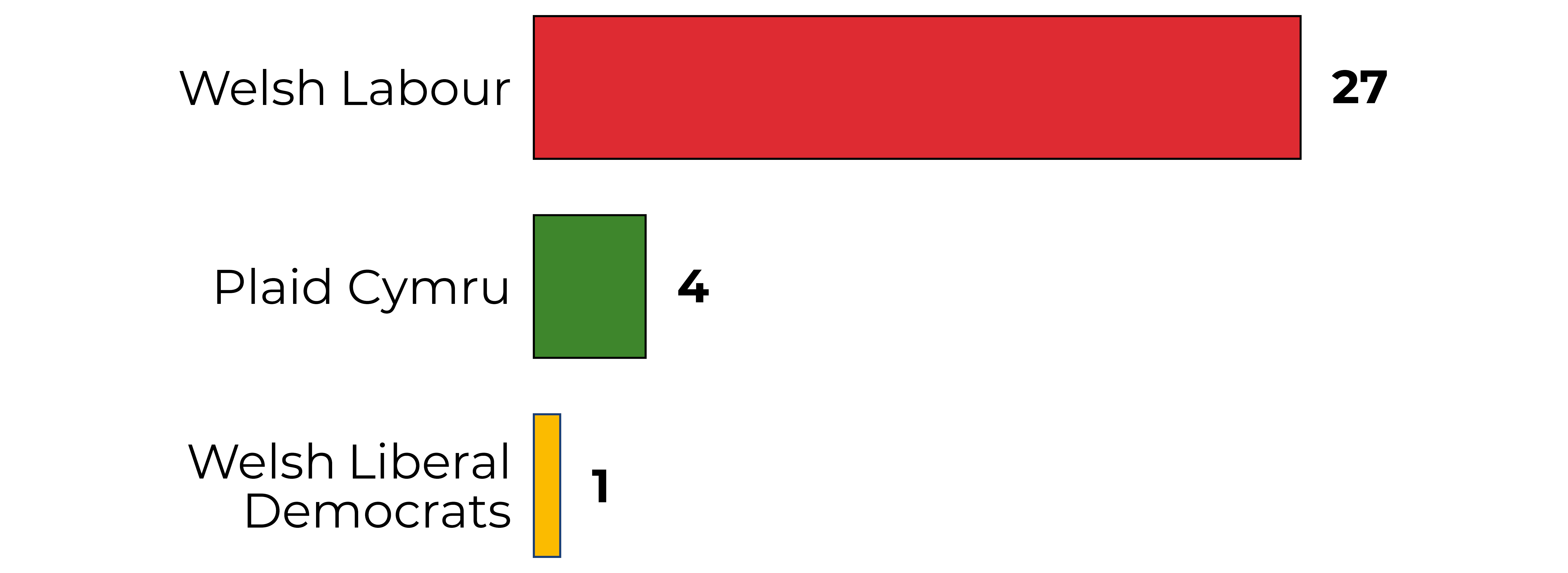
Source: BBC
It’s not possible to do a direct comparison with seat numbers won in 2019, as at that election Wales elected 40 MPs.
This reduction in MPs happened after the Boundary Commission for Wales conducted a review of parliamentary constituencies, in line with a new requirement to roughly equalise the size of constituencies (with the exception of the “protected constituency” Ynys Môn). The election on 4 July 2024 was the first time that these new constituencies have been in place.
This map shows the party that won each constituency in Wales.
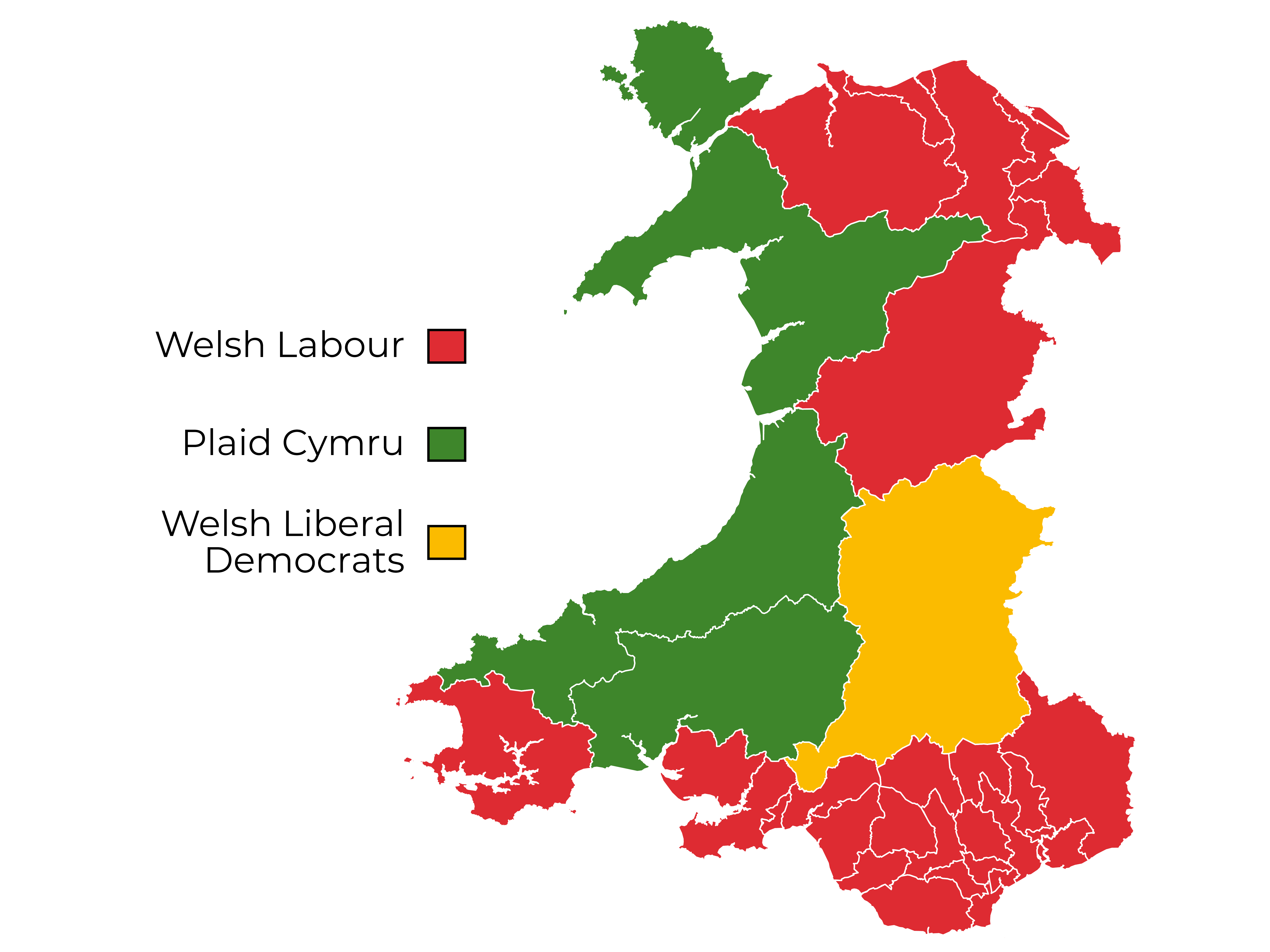
Source: BBC
Vote Share
Vote share is the percentage of the total vote that each party wins. This chart shows each party’s share of the vote in Wales with changes from the 2019 General Election.
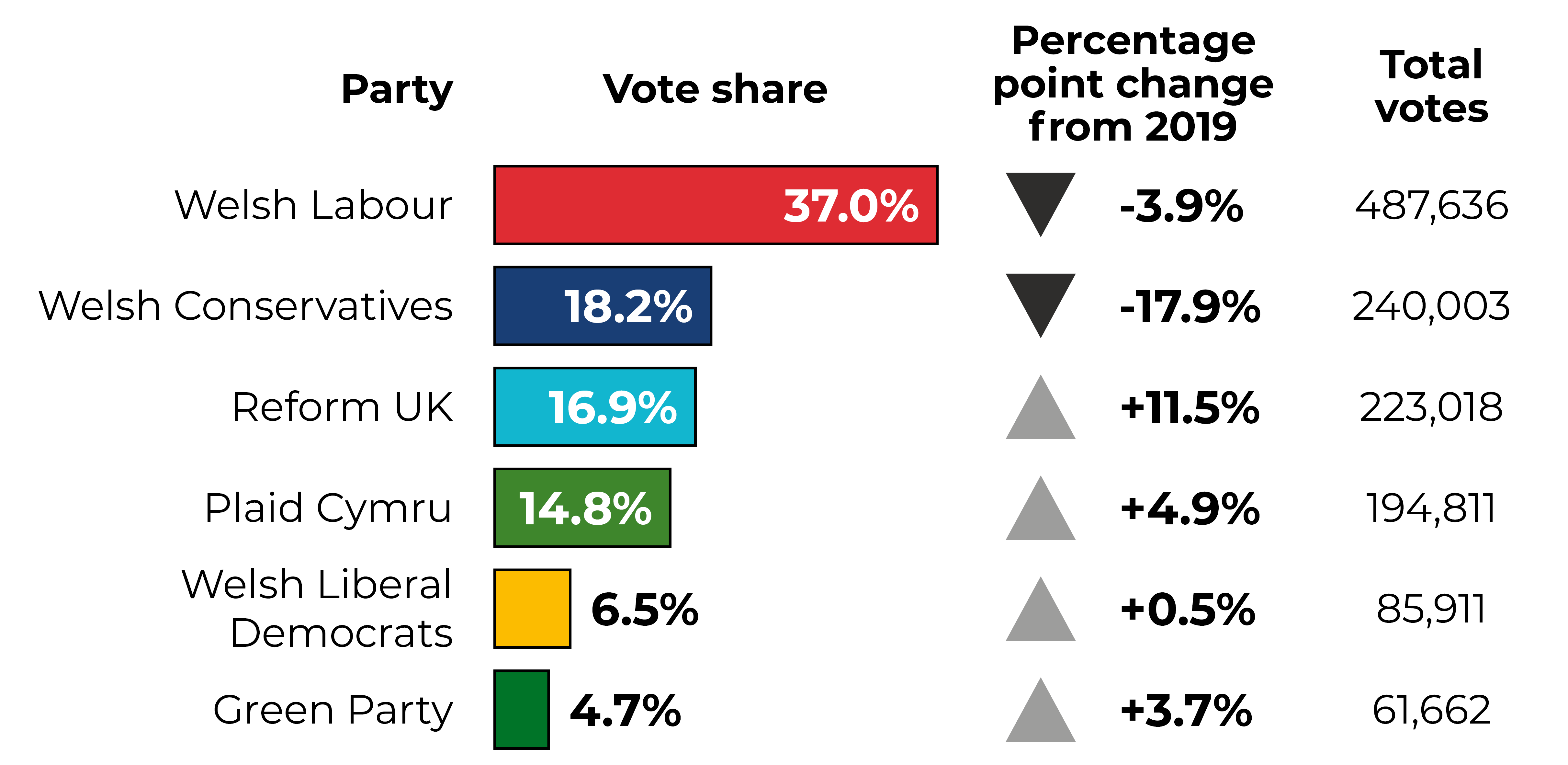
Source: BBC
Turnout
Turnout at this election was 56% in Wales, compared to 60% across the UK. The following chart shows how this compares with previous elections.
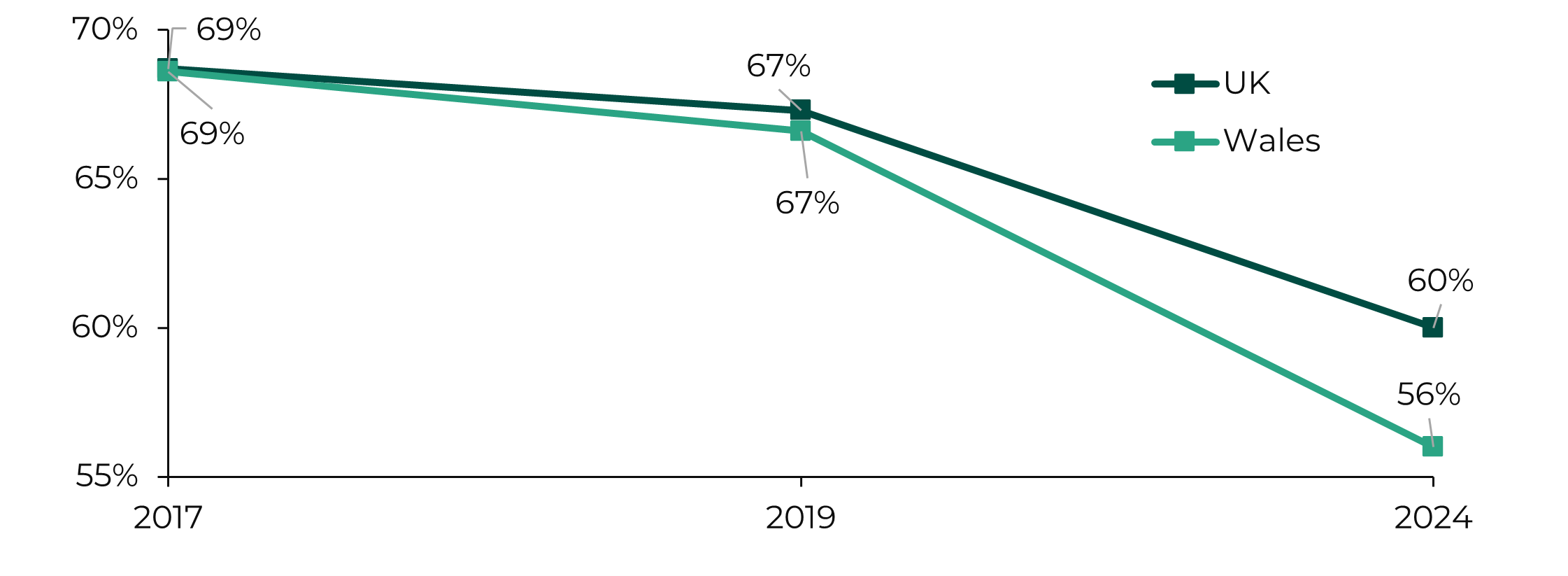
Source: House of Commons Library / House of Commons Library / BBC
This was the first UK General Election for which voters were required to bring photographic ID when voting. Our article on the 2024 Police and Crime Commissioners elections explored debates around the introduction of a voter ID requirement and its potential impact on turnout.
What happens next?
The UK Parliament will sit for the first time on Tuesday 9 July, where MPs will take the oath of allegiance or make a solemn affirmation, before electing (or re-electing) the Speaker of the House of Commons.
The State Opening of Parliament will take place on Wednesday 17 July, marking the formal start of the parliamentary year. The King’s Speech will set out the UK Government’s proposals for the first session of the new Parliament.
Article by Adam Cooke, Josh Hayman, Joe Wilkes, and Ahmed Ahmed, Senedd Research, Welsh Parliament




